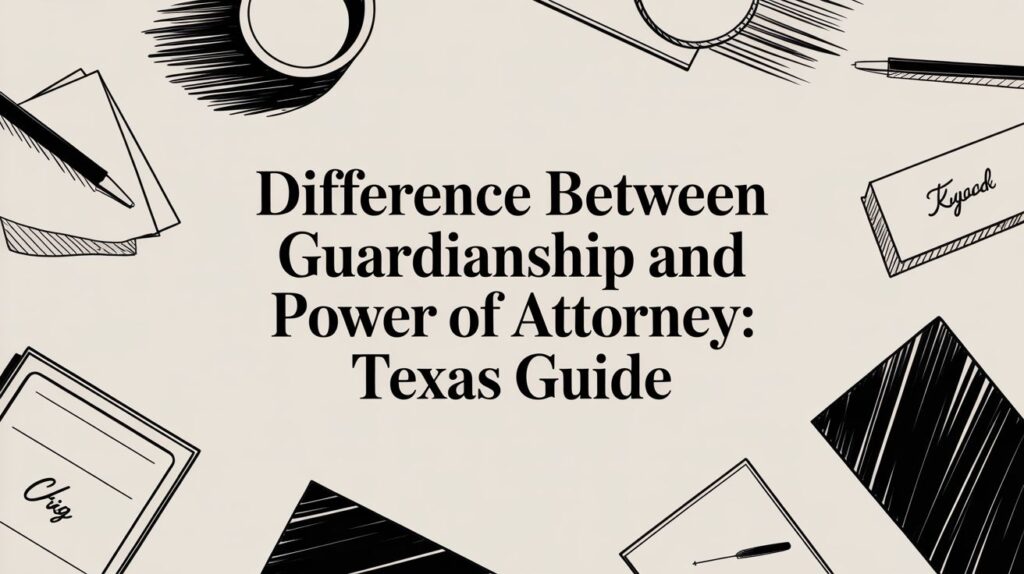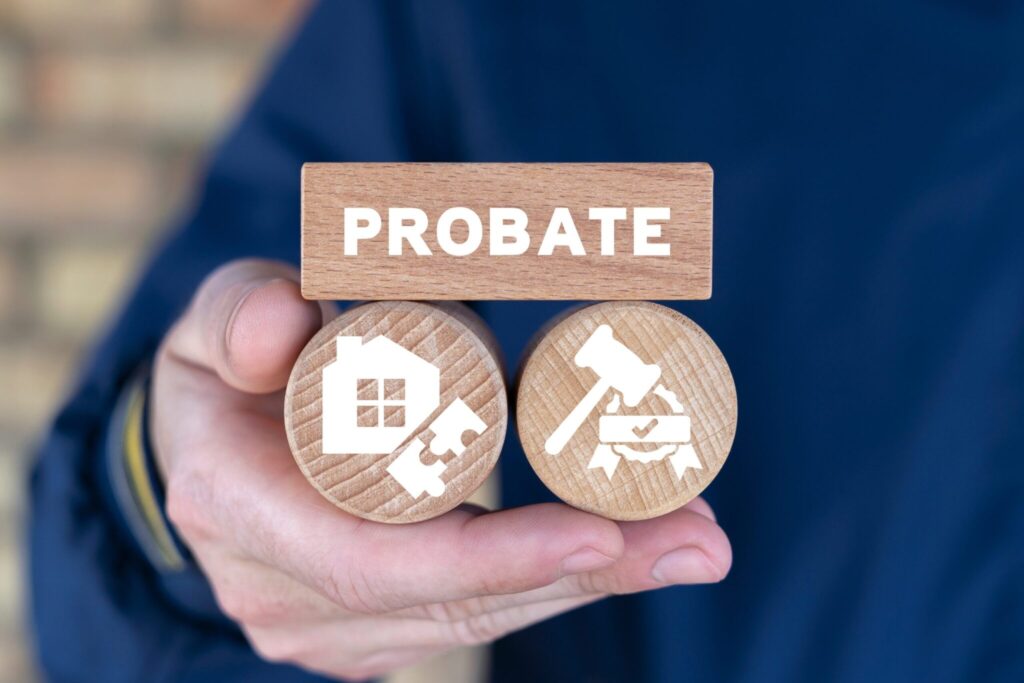When a person passes away, the process of managing their estate falls to an executor if one is named in the will. A common question that arises is, “Do executors handle probate in Texas?” Executors play a critical role in ensuring that the deceased’s assets are distributed and debts are paid according to their wishes and state law. In Texas, the executor is the individual who ensures that the deceased’s estate is handled correctly throughout the probate process.
This article explains the legal responsibilities of an executor in Texas probate, detailing the critical steps involved in managing an estate, addressing the challenges executors face, and highlighting the key aspects of probate law in Texas.
What Is Probate in Texas?
Before diving into whether executors handle probate in Texas, it’s essential to understand what probate is. Probate is the legal process through which the deceased person’s estate is administered. It involves validating the deceased’s will, paying any outstanding debts or taxes, and distributing assets to beneficiaries. The process also includes appointing an executor, who manages the estate.
In Texas, probate is typically handled in the county where the decedent lived. Depending on the complexity of the estate and the existence of a will, probate can be a relatively simple process or a lengthy one. Executors play an essential role in guiding the estate through the probate process.
The Role of an Executor in Texas Probate
In Texas, an executor is responsible for handling the deceased person’s estate during the probate process. The executor’s role goes beyond merely following instructions in the will; they must ensure that the estate is settled fairly and in compliance with the law. Here’s a closer look at the key responsibilities an executor has in Texas.

1. Filing the Will and Petitioning for Probate
The first task of an executor is to file the will in probate court. If there is a will, it must be submitted to the court for validation. The executor must also petition the court to be officially appointed as the executor of the estate. This begins the probate process, allowing the executor to act legally on behalf of the deceased.
If the decedent did not leave a will, the court will appoint an administrator to handle the estate. In this case, the administrator will perform duties similar to those of an executor.
2. Managing the Estate’s Assets
Once the court appoints the executor, their primary duty is managing the estate’s assets. The executor must locate, inventory, and protect all assets belonging to the estate. This includes real property, bank accounts, personal belongings, and vehicles.
Executors must also ensure that assets are properly valued, especially if the estate includes significant assets such as a family home or business interests. The executor is also responsible for ensuring that the estate’s assets are preserved during probate. If necessary, the executor may need to hire professionals to help manage these assets, such as accountants or real estate appraisers.

3. Paying Debts and Taxes
Before any assets are distributed to beneficiaries, the executor must address the estate’s debts and tax liabilities. This includes settling any outstanding bills, paying final medical expenses, and ensuring that any back taxes are addressed.
The executor is also responsible for filing income tax returns for the deceased, including filing a final federal return. Additionally, if the estate is large enough to require an estate tax return, the executor must file the appropriate documents with the IRS. Executors often work closely with tax professionals to make sure all tax obligations are met.
4. Distributing the Estate’s Assets
Once the debts and taxes are paid, the executor can begin distributing the estate’s assets. If there is a valid will, the executor must follow the instructions laid out in it. This means transferring property, distributing funds, and dividing personal belongings among the beneficiaries.
In the case of intestacy, when no will exists, the estate is distributed according to Texas intestate succession laws. These laws dictate who inherits the deceased’s property based on their familial relationship. The executor’s role is to ensure this distribution is fair and in line with Texas law.
5. Handling Final Tax Returns
After the estate’s assets have been distributed, the executor must file any remaining tax returns, including the final income tax return for the deceased. The executor may also need to handle the estate’s final accounting and file a final report with the probate court, which will include an accounting of all actions taken.
6. Closing the Estate
Once all assets are distributed, all debts are paid, and tax returns are filed, the executor can move to close the estate. To do so, the executor will petition the court for an order of discharge, which officially ends the probate process. The court will review the executor’s actions, and if everything is in order, they will approve the estate’s closure. At this point, the executor’s duties are complete.
Key Qualities of a Good Executor in Texas Probate
Being named as an executor in a will comes with significant responsibility. A good executor should possess several key qualities to ensure they handle the estate properly and fairly. Here are the essential qualities of a good executor in Texas.
1. Trustworthiness and Integrity
Executors must act in the best interests of the estate and its beneficiaries. They must follow the wishes of the deceased as outlined in the will and handle the estate’s assets with honesty and integrity. Trustworthiness is critical because the executor has access to sensitive financial information.
2. Attention to Detail
Managing an estate requires attention to detail. Executors need to keep track of numerous assets, debts, and other important details. Their organizational skills must be top-notch to prevent mistakes during the probate process. They must carefully document every action taken during probate to ensure everything is accounted for.
3. Knowledge of Legal and Financial Matters
While an executor does not need to be an expert in law or finance, having a general understanding of legal and financial matters is important. Executors need to complete forms, file documents with the court, and handle financial matters, so a basic knowledge of the probate process and estate law is helpful. When necessary, an executor should not hesitate to seek the advice of attorneys, accountants, or financial advisors.
4. Impartiality and Conflict Resolution Skills
A good executor must remain impartial, even if they have a personal stake in the estate. They must be able to navigate family dynamics and resolve any conflicts that arise between beneficiaries. If disputes occur, the executor’s role is to keep the probate process moving forward and ensure fairness for everyone involved.
Who Can Be an Executor in Texas?
In Texas, anyone over the age of 18 and of sound mind can serve as an executor. However, there are certain restrictions. For instance, individuals who have been convicted of a felony or non-residents of Texas may not be eligible to serve as executors.
If the person named as executor is unable or unwilling to serve, the court may appoint an alternate executor or administrator. The court’s priority is ensuring that the estate is handled legally and in accordance with Texas law, so if the named executor cannot perform their duties, another person will be appointed to carry out the responsibilities.
Challenges Executors Face in Texas Probate
While the role of an executor is critical, it also comes with challenges. Some of the most common challenges executors face include:
- Disagreements among beneficiaries: Family disputes over the distribution of assets can delay the probate process. The executor must mediate these disagreements, if possible, and keep the process on track.
- Managing complex estates: Large estates, especially those with multiple properties, business interests, or valuable personal property, can be difficult to manage.
- Dealing with debt: If the estate has outstanding debts, the executor must ensure these are paid before distributing assets to beneficiaries. This can be a complicated and time-consuming process.
- Tax issues: Handling tax returns and ensuring compliance with both state and federal tax laws can be overwhelming, especially for estates that are subject to estate taxes.

How to Become an Executor in Texas
Becoming an executor in Texas starts when the decedent names you in their will. If you are named as an executor, the next step is to file the will with the probate court and petition for probate. The court will then review the will, verify its validity, and appoint you as the executor. Once appointed, you can begin managing the estate according to the instructions outlined in the will.
If there is no will, the court will appoint an administrator to handle the estate based on Texas’s laws of intestate succession. The administrator performs many of the same tasks as an executor but will follow state law to distribute the assets.
Conclusion: Executors in Texas Probate
In Texas, executors play a key role in handling probate. They are responsible for managing the estate, paying debts, ensuring proper distribution of assets, and closing the estate once all obligations have been met. Executors must act with care, attention to detail, and integrity to fulfill their responsibilities and ensure the estate is administered according to the law.
Being named as an executor is an honor, but it is also a responsibility that requires a clear understanding of Texas probate law. If you’ve been appointed as an executor, make sure to follow the process closely, seek professional advice when needed, and ensure that the estate is handled fairly and legally. The probate process may seem daunting, but with the right approach, you can navigate it effectively and ensure the wishes of the deceased are honored.








